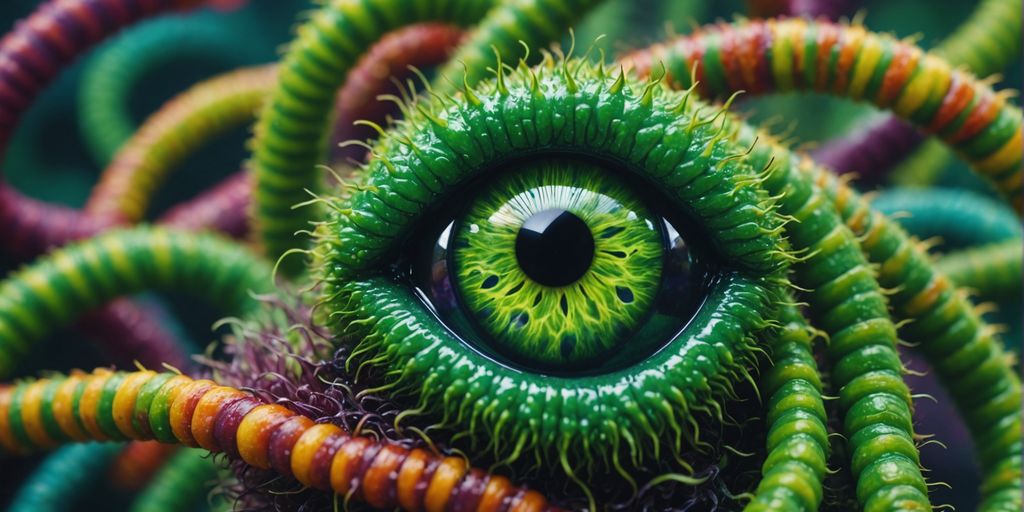Our bodies are home to trillions of tiny organisms called microbes. These microbes live on our skin, in our mouths, and especially in our guts. They help us digest food, fight off bad germs, and even influence our moods. Surprisingly, the people we live with can change the mix of microbes in our bodies. This article explores how our relationships, from family ties to romantic bonds, can shape our microbiomes and affect our health.
Key Takeaways
- People who live together often share similar microbiomes, affecting their health and well-being.
- A mother’s microbiome plays a crucial role in shaping her baby’s gut health, especially during pregnancy and early childhood.
- Romantic partners can influence each other’s microbiomes through close contact and shared behaviors.
- Stress and emotional changes from relationship breakups can reduce the diversity of our gut microbes.
- Diet plays a significant role in shaping our gut microbiota, impacting both physical and mental health.
The Influence of Co-Habitation on Microbiome Composition
Microbiome Similarities Among Family Members
People who live with us have an influence on our microbiome community. Family members often share similar microbiome communities. This means that the people we live with, including family members, friends, and even neighbors, can have a marked influence on the composition of our microbiome. Studies have shown that family members tend to have similar microbiome communities. The microbiome has a significant impact on the functioning of body systems such as the immune system and brain cognition. Therefore, diseases associated with microbiome dysfunction, including obesity, type 2 diabetes, and cognitive disorders, could be influenced by the microbiomes of those around us.
Impact of Shared Environment on Skin Microbiome
The microbiome of couples who live together tends to have similarities, especially in terms of the microbial strains found on their skin. It has been observed that the skin microbiomes of cohabiting couples have a higher degree of microbial similarity compared to unrelated individuals. This suggests that cohabitation and sharing the same environment can influence the composition of the skin microbiome. The potential implications of these findings are the role of shared microbial communities in maintaining skin health and contributing to skin diseases.
Microbiome and Disease Transmission in Close Quarters
Living in close quarters can also lead to the transmission of diseases through shared microbiomes. The potential transmission of the microbiome among individuals who live together proposes that similarities in microbes may result in similarities in beliefs, decision-making processes, and behaviors. This can be in addition to the thoughts and behaviors we learn directly from the people around us. Although, at present, it is an exaggeration to claim that the similarities and dependence of a couple who live together for a long time are solely the result of their similar microbiome.
Microbiome Changes During Pregnancy and Early Childhood
Maternal Microbiome’s Role in Infant Health
During pregnancy, the mother’s microbiome plays a crucial role in shaping the baby’s gut microbiota. This helps the baby digest food, produce important metabolites, and develop a strong immune system. The genetic elements of the mother’s microbiome form the baby’s gut microbiota and produce special metabolites in the baby’s digestive system.
Breastfeeding vs. Formula Feeding and Microbiome
The type of feeding—whether breastfeeding or formula feeding—affects the baby’s microbiome. Breastfeeding introduces beneficial bacteria and nutrients that help in the baby’s overall development. On the other hand, formula feeding can lead to a different microbial composition in the baby’s gut.
Long-Term Health Implications of Early Microbiome
The early microbiome has long-term effects on a child’s health. A well-balanced microbiome can protect against diseases like obesity, type 2 diabetes, and cognitive disorders. Therefore, the early microbial environment is essential for lifelong health.
Romantic Relationships and Microbiome Interactions
Gut Microbiota Similarities in Couples
Couples often have more similar gut microbiota than even siblings. This suggests that romantic relationships can strongly influence gut bacteria, possibly more than shared genetics or early life environments. The reasons for this similarity include shared diets, environments, and behaviors.
Impact of Kissing on Oral Microbiome
Intimate kissing can change the oral microbiome, making partners’ microbial strains more alike. Couples who kiss frequently have more similar salivary microbiota. This shows how close contact can spread both beneficial and harmful bacteria.
Behavioral Concordance and Microbiome
Partners often share behaviors like diet, exercise, and sleep patterns, which can lead to similar gut microbiota. For example, if one partner loves fast food, it might influence the other’s food choices, affecting their gut bacteria. This behavioral concordance plays a significant role in the shared microbiome of couples.
The Effects of Relationship Dissolution on Microbiome Diversity
Stress and Microbiome Diversity
When a romantic relationship ends, it can be one of the most stressful events in a person’s life. Stress has a great impact on microbiota. This stress can lead to changes in diet, less physical contact with others, and feelings of sadness. All these factors can change the microbiome in our gut. For example, moving out of a shared home can lead to a new microbial environment, similar to when someone moves to a new city or is under quarantine.
Depression and Gut Microbiota
Depression often follows the end of a romantic relationship. Studies have shown that depression is linked to a decrease in gut microbiota diversity. This means that the variety of bacteria in the gut goes down, which can affect overall health. Reduced microbiota diversity is related to obesity, heart disease, type 2 diabetes, and inflammatory disorders.
Potential Interventions to Restore Microbiome Balance
To help restore the balance of the microbiome after a breakup, certain steps can be taken:
- Dietary Changes: Eating more dietary fibers can help increase microbiota diversity and have an antidepressant effect.
- Physical Activity: Regular exercise can positively impact gut health.
- Social Interaction: Staying connected with friends and family can help maintain microbiota diversity.
Romantic relationship dissolution is a common and painful experience that can lead to decreased gut microbiota diversity. However, with the right interventions, it is possible to restore balance and improve overall health.
Diet, Microbiome, and Mental Health
Role of Diet in Shaping Gut Microbiota
Diet plays a crucial role in shaping the gut microbiota. Environmental factors and health behaviors might explain more microbiota variability than genetic factors. Among these, diet is a major predictor of gut microbiota composition. For instance, a high-fat diet may disrupt gut bacteria, leading to increased body fat and changes in brain serotonin levels.
Prebiotics and Probiotics for Mental Health
Prebiotics, like fibers, are dietary supplements that are selectively used by microbiota. Probiotics, such as Lactobacillus, are live microorganisms ingested to confer health benefits. Recently, studies have explored the beneficial effects of prebiotics and probiotics on mental health. However, translating these findings from animals to humans has been slow. Challenges include ensuring the survival of probiotics to reach the intestines and selecting appropriate bacterial strains.
Challenges in Translating Microbiome Research to Humans
Despite promising results, translating microbiome research to humans faces several hurdles. Unstable results have been reported in meta-analyses exploring the efficacy of probiotics on stress reactions. More large-scale and well-designed clinical trials are needed. Technical difficulties with probiotics include ensuring their survival to colonize the intestines and selecting the right bacterial strains. An optimal diet therapy to mitigate the detrimental effects of stress on the gut-microbiota-brain axis remains undetermined.
Social Interactions and Microbiome Diversity
Microbiota Transmission Through Social Networks
Humans are social creatures, and our interactions can influence our microbiomes. People who live with us or are close to us can impact the shape of our gut, skin, and oral microbiomes. Studies have shown that family members tend to have similar microbiome communities. This means that the people we live with, including family members, friends, and even neighbors, can have a marked influence on the composition of our microbiome.
Influence of Social Stress on Microbiome
Stress, especially interpersonal stress like conflict or romantic relationship dissolution, can reduce microbiota diversity. This reduction in diversity can have negative effects on our health. For example, depression is associated with decreased gut microbiota diversity. Given that romantic relationship dissolution is frequently associated with solitary living, stressful feelings, and depressive tendencies, it is speculated that romantic relationship dissolution might be related to decreased microbiota diversity.
Microbiome Diversity and Infection Resistance
A diverse microbiome can help counterbalance the increased exposure to infectious agents that comes with being sociable. Social interaction allows microbiota transmission between individuals, contributing to increased microbiota diversity. This diversity can enhance our resistance to infections and improve our overall health.
The composition of our microbiome is influenced by the people we interact with, and maintaining a diverse microbiome can help us stay healthy.
Conclusion
In conclusion, the relationship between jealousy and the microbiome is a fascinating area of study that highlights the complex interplay between our emotions and the microscopic world within us. The people we live with, including family members, friends, and romantic partners, can significantly influence the composition of our microbiome. This, in turn, can affect our physical and mental health. Understanding these connections can open new avenues for improving well-being through microbiome-related therapies and lifestyle changes. As research continues, we may discover even more ways in which our social interactions and relationships shape our internal microbial communities and, consequently, our overall health.
Frequently Asked Questions
How do people we live with affect our microbiome?
People who live with us, like family and friends, can change our gut, skin, and mouth microbiomes. This can impact our health, including our immune system and brain functions.
How does a mother’s microbiome influence her baby during pregnancy?
During pregnancy, a mother’s microbiome helps shape the baby’s gut bacteria, aiding in digestion and immune system development. This can affect the baby’s long-term health.
Do couples share similar microbiomes?
Yes, couples who live together often have similar microbiomes, especially on their skin and in their mouths. This can be due to close contact and shared environments.
What happens to the microbiome when a romantic relationship ends?
The end of a romantic relationship can lead to stress and depression, which may reduce the diversity of gut microbiota. This can impact overall health.
Can diet change your microbiome and mental health?
Yes, what you eat can shape your gut bacteria. Prebiotics and probiotics can help improve mental health, but more research is needed to understand their effects on humans.
How do social interactions influence our microbiome?
Social interactions can lead to the sharing of microbiota, increasing diversity. However, social stress can reduce microbiome diversity, impacting health and resistance to infections.

